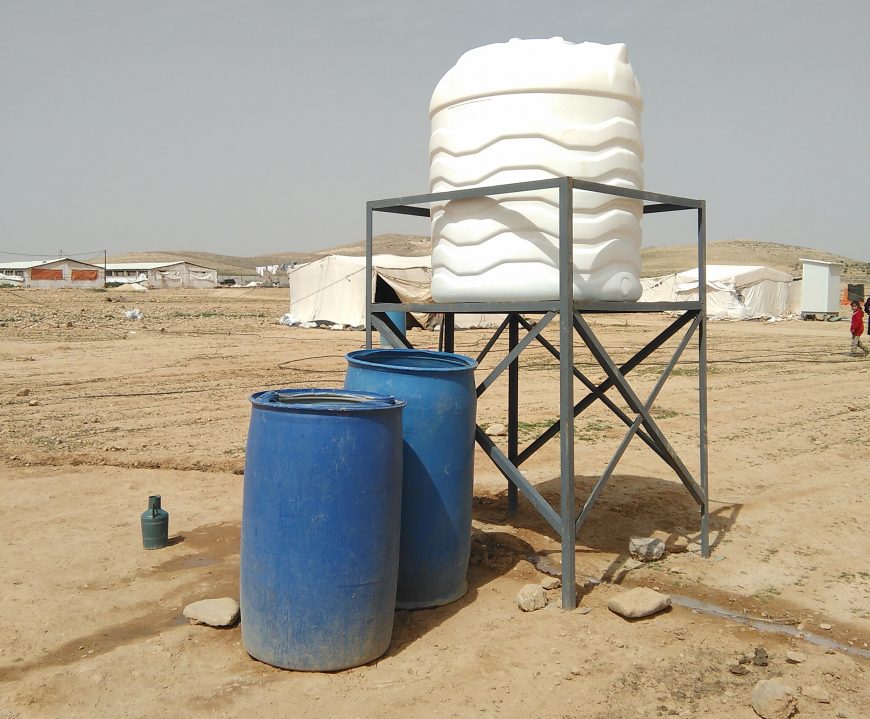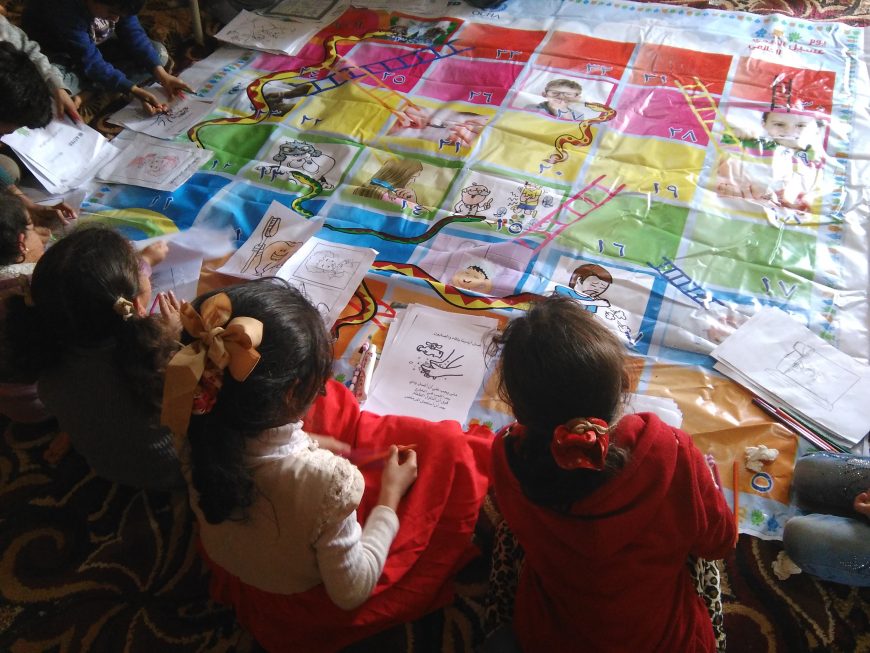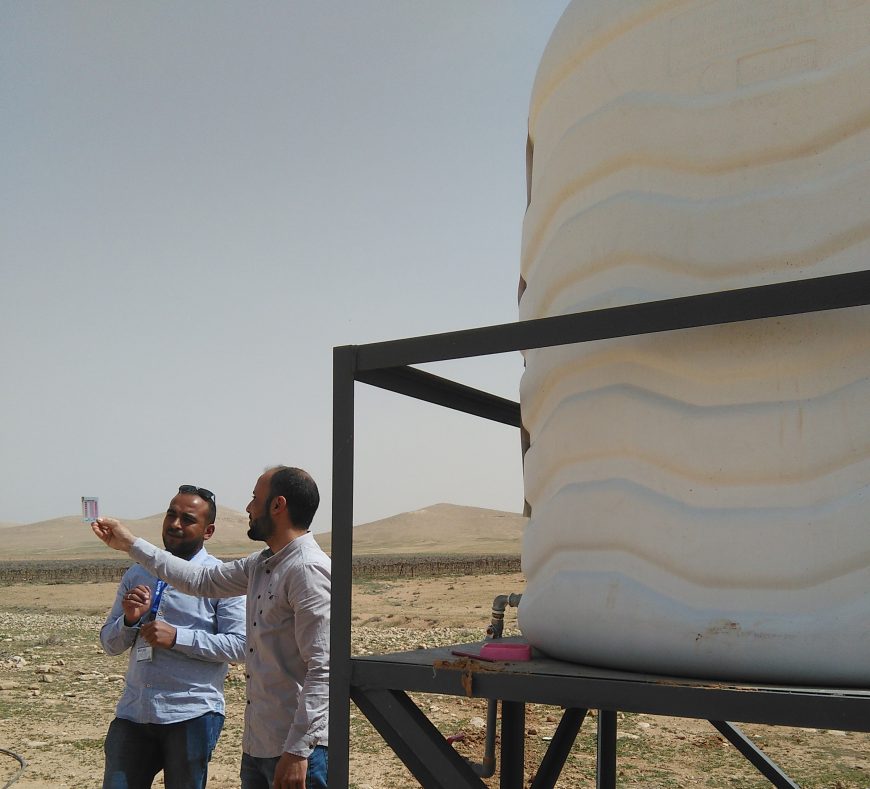It is a sunny morning in Mafraq governorate. Somewhere near Mafraq city, a group of children is drawing inside a tent, while waiting for an ACTED hygiene promotion session to begin. They live in one of the many informal tented settlements that host over 15,000 Syrians across Jordan.
Vulnerable people often left behind
Informal tented settlements have become the default option for refugees to reside in camps or unable to afford housing solutions within host communities for a variety of reasons, including the lack of financial resources, the cultural tradition of nomadic lifestyle or inter-community tensions in refugee camps.
As informal tented settlements are located far from urban centres, their residents often fall outside the scope of the majority of relief organisations targeting refugees. As a result, they are among those who have the greatest needs. Due to the lack of water, hygiene and sanitation infrastructure in the sites, access to water is a persistent challenge for their residents.
The usually easiest way for them to find water is either using private wells or buying it from vendors. This, in addition to the lack of water storage facilities and adequate sanitation facilities, results in poor hygiene practices, increasing residents’ vulnerability to health concerns.
Through the months of July 2017 to March 2018, ACTED has provided emergency water, sanitation and hygiene services to 1,400 Syrian refugees and up to 1,000 vulnerable Jordanian families in 23 of these sites, as part of a UNOCHA-funded project.

How infrastructural interventions and hygiene promotion can create positive change
Throughout its intervention, ACTED installed water, hygiene and sanitation premises in the sites, notably latrines and water tanks, and distributed hygiene kits containing soap, shampoo and a toothbrush. ACTED also set up and trained WASH committee who are now in charge of infrastructural maintenance, hygiene promotion and water treatment, for which the members were provided with water quality testing kits.

They were not brushing their teeth systematically before, and they often did not have soap or toothbrushes either.
Hygiene promotion sessions, coupled with the distribution of hygiene kits, can help to improve household and personal hygiene. Today, the hygiene promotion session focuses on children.
Increasing access to safe water and sanitation
We fled Syria in 2013,. When we arrived in Jordan, we spent around 20 days in Zaatari camp before we left for the Jordan Valley, where we started to farm. We only arrived in Mafraq governorate one month ago.
The majority of Syrians living in informal tented settlements have always worked in the agricultural sector. As a result of the war in Syria, they have lost their farms and must now work on Jordanian farms, where they represent a skilled and cheap workforce. Most of them live in multiple locations in Jordan and move multiple times, mainly to find work opportunities in farms. Prior to ACTED’s intervention, they only had a very limited access to safe water and sanitation services:

Before we had nothing, no latrine, no tank to stock the water. And we could not know if it was safe or not.
The future of the residents of informal tented settlements remains uncertain. ACTED is looking to further support the most vulnerable to provide them with the means to meet their most basic , notably through the provision of cash assistance.